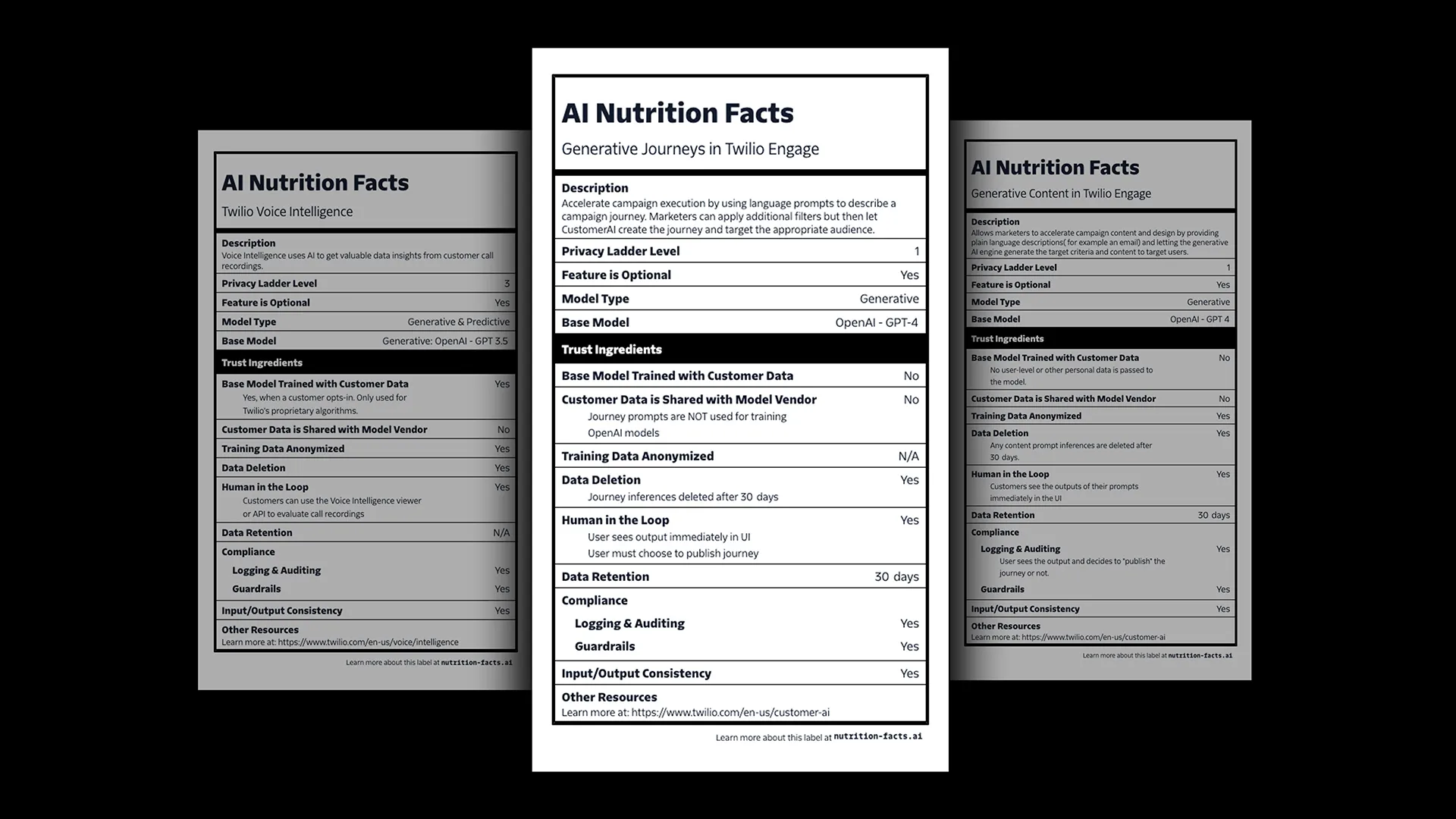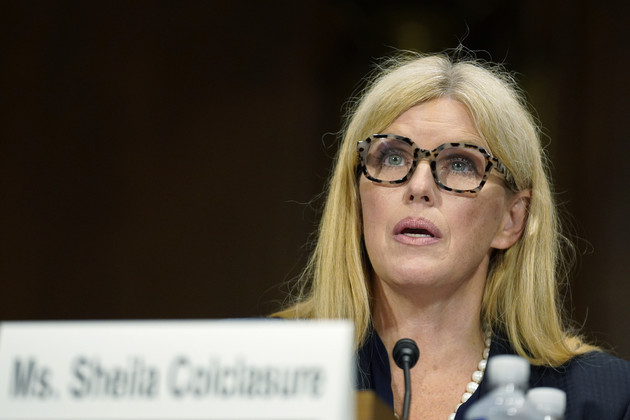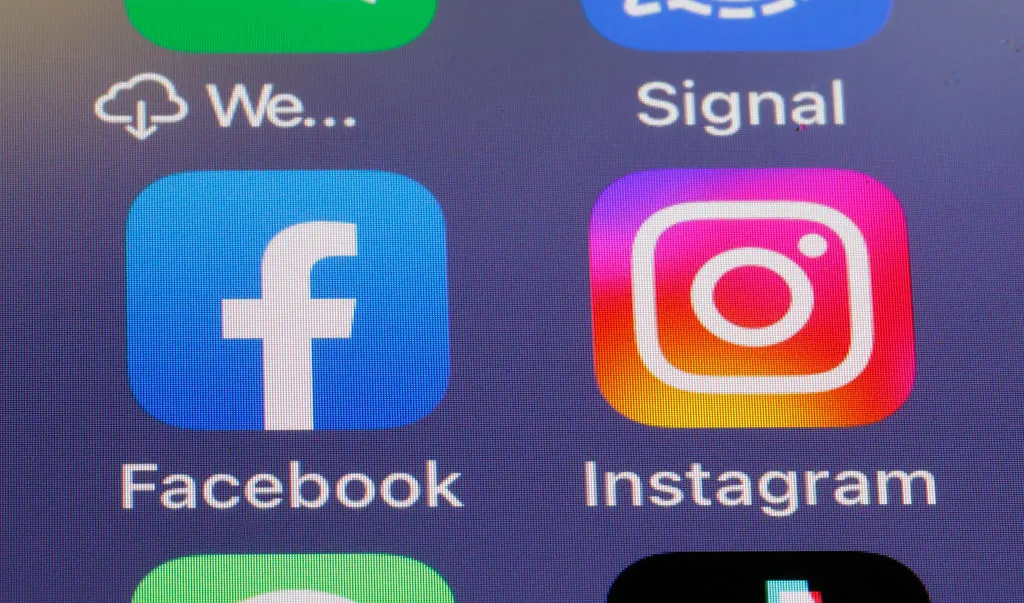|
|
 |
They would be the first company that massively violated COPPA at scale, got caught doing it, and then while operating under consent decree did it again.
Josh Golin, Fairplay Executive Director
|
|
|
Welcome to Snippets—Google-owned YouTube is feeling the heat after a report came out claiming the streaming service violated COPPA by allowing third-parties to track children’s use of the platform. Senators have called on the FTC to investigate, while children’s digital advocacy groups Fairplay and the Center for Digital Democracy have filed a formal complaint.
Plus, new research ranked the data privacy practices of online clinics providing mifepristone and misoprostol, Twilio will start giving their AI tools “nutrition labels," ad firms are using targeted advertising to fight California’s Delete Act, and more.
|
|
|
|
|
YouTube accused of COPPA violations
|
 |
|
Melina Mara/The Washington Post
|
Children's privacy advocates are pushing federal regulators to fine YouTube and impose stricter privacy limits on the video streaming service, following allegations that the platform allowed third party advertisers to track kid’s data across the web.
|
- Last week, a report from Adalytics stated that YouTube was serving adult ads on videos intended for kids, and may have “‘data poisoned’ their first party datasets with data derived from thousands of viewers of ‘made for kids’ videos.”
- Senators Edward J. Markey and Marsha Blackburn called for an investigation by the Federal Trade Commission (FTC), stating this issue may have affected “potentially millions” of children in the US.
- Owned by Google, YouTube is already under a 2019 FTC consent decree and, if found in violation again, could face billions in fines under the Children’s Online Privacy Protection Act (COPPA).
|
|
|
|
|
|
|
Join hundreds of your peers in the Privacy Pulse community
|
|
Privacy Pulse is an invite-only community where privacy professionals can crowdsource solutions to their biggest challenges, share or find a new role, and expand their professional network.
To make sure our community is valuable, thriving, and safe, we ask that everyone submit a brief application to join. All applications will be reviewed within 24 hours.
|
|
|
|
|
|
|
|
Digital abortion clinics receive low privacy score
|
 |
|
Jacqui Vanliew; Getty Images
|
Following the overturn of Roe v. Wade, health care startups offering online prescriptions of mifepristone and misoprostol, often referred to as the “abortion pill,” have gained significant traction. But according to privacy experts, many of these services aren’t as secure as women may think.
|
- Research completed by WIRED suggests that, though services like Hey Jane, Choix, and Wisp are HIPAA compliant, the way these platforms collect and share personal data may leave women vulnerable to prosecution in states where abortion is illegal.
- Bioethics expert Sharona Hoffman notes that, under HIPAA, health care providers are allowed, though not required, to disclose PI in response to a search warrant—and that, in order to avoid litigation, most end up complying.
- Of the five clinics analyzed, Aid Access scored the highest for privacy protections, receiving a ‘Low Risk’ ranking across all categories, while Choix and Wisp scored the lowest—receiving ‘High Risk’ for three of the four categories.
|
|
|
|
|
|
|
|
AI “nutrition labels” aim to build consumer trust
|
 |
|
Image: Twilio
|
As privacy and security concerns grow in tandem with the rise of artificial intelligence tools, AI providers are working to provide greater transparency and increase consumer trust by offering more details on how their AI systems use personal data.
|
- Customer communication platform Twilio, announced it will start using “nutrition labels” on their AI services—in an effort to give customers more information about how their data is being used.
- The labels, which Twilio has made available for use by other companies, outline what AI model is being used, whether customer data is being shared with the AI vendor, how long data will be retained, and more.
- In another move towards AI transparency, Salesforce has released an acceptable use policy outlining what companies can and can’t do with the platform’s AI tools.
|
|
|
|
|
|
|
|
- Meta switches legal basis to consent after Norway threatens daily $100k fine.
- Federal judge rules AI-generated art cannot be copyrighted.
- Snapchat launches Dreams, an AI-powered photo manipulation feature.
- China to roll out new compliance audits for companies processing PI.
- Meta releases the desktop version of Threads, as traffic declines.
|
|
|
|
|
|
Ad firms using PI to lobby against Delete Act
|
 |
|
Ting Shen/AP Photo
|
Interpublic Group (IPG), one of the world’s largest ad firms, is using their “in-house digital advertising capabilities” to power an opposition campaign against California’s SB 362. Known as the Delete Act, this proposed law would make it easier for consumers to request that data brokers delete their personal information.
|
- According to emails obtained by Politico, IPG is working in tandem with data broker subsidiary Acxiom, which will provide the data used to target ads for the campaign.
- The IPG claims that giving consumers the ability to delete their data would raise health care costs, increase fraud, and hurt small businesses—and has encouraged voters to voice their opposition to Democratic Sen. Josh Becker, the bill’s primary backer.
- In an interview, Becker stated that the firm's use of their “treasure trove of data” to lobby against the bill only “highlights the reason for concern.”
|
|
|
|
|
|
|
|
Meta confirms non-personalized feeds in the EU
|
 |
|
Chesnot / Contributor / Getty Images
|
Meta will give EU users the option to turn-off AI powered content feeds—driven by stipulations in the rebooted Digital Services Act (DSA), which require that large social platforms allow users to opt-out of “personalized” feeds.
|
- Users that turn off algorithmic feeds will instead see content based on chronological order or by local popularity.
- The bloc instituted this requirement based on concerns that algorithmic feeds could have adverse consequences for users, such as addiction, information echo chambers, and manipulation.
- While TikTok made a similar announcement earlier this month, Meta’s move comes only days before the DSA’s Aug 25 deadline.
|
|
|
|
|
|
|
Five foundational steps for better AI policies
|
|
In these early days of AI, setting up the right AI governance is crucial—and companies that set a strong foundation now will be able to move faster and more confidently in the space.
Read Transcend CEO Ben Brook's recent op-ed in CPO Magazine to learn five ways to build better AI governance policies at your company.
|
|
|
|
|
|
|
|
|
Snippets is delivered to your inbox every Thursday morning by Transcend. We're the platform that helps companies put privacy on autopilot by making it easy to encode privacy across an entire tech stack. Learn more.
|
|
|
|
You received this email because you subscribed to Snippets. Did someone forward this email to you? Head over to Transcend to get your very own free subscription! Curated in San Francisco by Transcend.
|
|
|
|
|
|